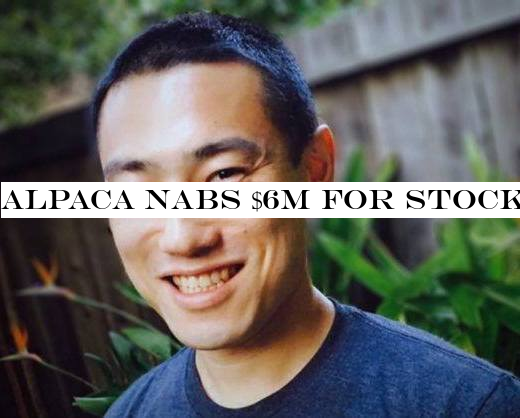Technology
Jack Dorseyannouncement that Twitter will no longer run political ads because &political messages reach should be earned, not bought& has been welcomed as a thoughtful and statesmanlike contrast to Mark Zuckerbergand Facebookgreedy acceptance of &political ads that lie.& While the 240-character policy sounds compelling, itboth flawed in principle and, I fear, counterproductive in practice.
First: like it or hate it, the U.S. political system is drowning in money. In 2018, a non-presidential year, it is estimated that over $9B was spent on the U.S. elections. And unless laws change, more will continue to flow. Banning digital ads will not reduce the amount of money in politics, and will simply shift it to less transparent channels. In an ideal world, it would be great if all &political messages were earned and not bought,& but that is not how our system works. Candidates, Super PACs, C4s and others already allow the majority of their budgets to be swallowed up by other, less visible, accountable and cost-effective, channels — including television, mail, telephone, and radio.
More likely, at least some of the money will end up with even less transparent organizations that aren&t deemed &political,& but very much are.
Second, banning digital political ads will not only hurt the very candidates people should want to help, it will also damage our democratic process. Analog mediums are significantly more expensive and inefficient than digital ones, so candidates who have a lot of money and/or have spent time cultivating their followings will continue to dominate. In other words, incumbent candidates, rich people and reality TV stars enjoy an outsized advantage when digital advertising is denied.
A recent Stanford study found that, at the state house level, more than 10 times as many candidates advertise on Facebook than advertise on television. The research found that digital ads lowers advertising costs, which expands the set of candidates for whom advertising — and thus the potential to reach voters and seriously contest an election — is a real possibility.
Lesser well-known, but often highly-qualified candidates at the state, local and federal level are precisely the people who have been celebrated for their new perspectives, creative ideas and commitment to shake up the system. People who put their heads down, do good work in their communities and decide to run because they want to make a difference will be the ones that are disadvantaged.
You know who gets plenty of earned media opportunities? Donald Trump. He will be fine. In fact, he will be better than fine because we&ve just handed him and more extremist candidates like him a distinct advantage.
Democracy is about the combination of free speech and transparency. As the old adage goes, sunlight is the best disinfectant, so here are a few ideas that would be more effective than a ban:
- Adding a &nutrition label& to political ads offers a more accessible, understandable and consistent way to identify the identities of the funder, their location, their budget and their target audience. This should be easily accessed, in any political ad via one click, just like we know where to find nutrition information on food we buy.
- Enhance &consumer beware& acknowledgments so that if digital political ads remain exempt from fact-checking (as they mostly are on television), platforms have a duty to make that clear with visual signals and user education.
Ultimately, decisions about what is permissible political speech and appropriate distribution and targeting is too important to be left to technology platforms and their conceptions of the public interest.
Do we want Google, Facebook and Twitter making the rules for all political ads and being responsible for enforcing them? What we need is a true oversight body — one with teeth. If non-political advertisers make false claims about their own products or those of their competitors, they can be fined by the FTC. This is an acknowledgment, not only that consumers need accurate facts, but also that companies can not police themselves. This is far too much power for them.
This isn&t a way to let technology companies off the hook, as there is plenty more they can do as noted above. But we need a truly independent organization overseeing political ads — the rules that govern them and holding organizations accountable to following those rules. Is this the FEC? I&m not sure.
As I write this today, I worry that no agency truly has the capacity or the expertise to create these rules and challenge bad campaign practices. We should remedy this post-haste and get to finding true solutions. The alternative seems easier and even principled to fight for, but the unintended consequences will be swift — a government full of the types of people who we say we don&t want.
- Details
- Category: Technology
Read more: Banning digital political ads gives extremists a distinct advantage
Write comment (90 Comments)Stock trading app Robinhood is valued at $7.6 billion, but it only operates in the U.S. Freshly funded fintech startup Alpaca does the dirty work so developers worldwide can launch their own competitors to that investing unicorn. Like the Stripe of stocks, Alpaca API handles the banking, security and regulatory complexity, allowing other startups to quickly build brokerage apps on top for free. It has already crossed $1 billion in transactions within a year of launch.
The potential to power the backend of a new generation of fintech apps has attracted a $6 million Series A round for Alpaca led by Spark Capital . Instead of charging developers, Alpaca earns its money through payment for order flow, interest on cash deposits and margin lending, much like Robinhood.
&I want to make sure that people even outside the U.S. have access& to a way of building wealth thathistorically only &available to rich people& Alpaca co-founder and CEO Yoshi Yokokawa tells me.

Alpaca co-founder and CEO Yoshi Yokokawa
Hailing from Japan, Yokokawa followed his friends into the investment banking industry, where he worked at Lehman Brothers until its collapse. After his grandmother got sick, he moved into day-trading for three years and realized &all the broker dealer business tools were pretty bad.& But when he heard of Robinhood in 2013 and saw it actually catering to users& needs, he thought, &I need to be involved in this new transformation& of fintech.
Yokokawa ended up first building a business selling deep learning AI to banks and trading firms in the foreign exchange market. Watching clients struggle to quickly integrate new technology revealed the lack of available developer tools. By 2017, he was pivoting the business and applying for FINRA approval. Alpaca launched in late 2018, letting developers paste in code to let their users buy and sell securities.
Now international developers and small hedge funds are building atop the Alpaca API so they don&t have to reinvent the underlying infrastructure themselves right away. Alpaca works with clearing broker NTC, and then marks up margin trading while earning interest and payment for order flow. It also offers products like AlpacaForecast, with short-term predictions of stock prices, AlpacaRadar for detecting price swings and its MarketStore financial database server.

AlpacaForecast
The $6 million from Spark Capital, Social Leverage, Portag3, Fathom Capital and Zillionize adds to $5.8 million in previous funding from investors, including Y Combinator. The startup plans to spend the cash on hiring to handle partnerships with bigger businesses, supporting its developer community and ensuring compliance.
One major question is whether fintech businesses that start to grow atop Alpaca and drive its revenues will try to declare independence and later invest in their own technology stack. Therethe additional risk of a security breach that might scare away clients.
Alpacatop competitor, Interactive Brokers, offers trading APIs, but other services as well that distract it from fostering a robust developer community, Yokokawa tells me. Alpaca focuses on providing great documentation, open-source contribution and SDKs in different languages that make it more developer-friendly. It will also have to watch out for other fintech services startups like DriveWealth and well-funded Galileo.
Therea big opportunity to capitalize on the race to integrate stock trading into other finance apps to drive stickiness because ita consistent, voluntary behavior rather than a chore or something only done a few times a year. Lender SoFi and point-of-sale system Square both recently became broker dealers as well, and Yokokawa predicts more and more apps will push into the space.

Why would we need so many stock trading apps? &Every single person is involved with money, so the market is huge. Instead of one-player takes all, there will be different players that can all do well,& Yokokawa tells me. &Like banks and investment banks co-exist, it will never be that Bank of America takes 80% of the pie. I think differentiation will be on customer acquisition, and operations management efficiency.&
The co-founderbiggest concern is keeping up with all the new opportunities in financial services, from cash management and cryptocurrency that Robinhood already deals in, to security token offerings and fractional investing. Yokokawa says, &I need to make sure I&m on top of everything and that we&re executing with the right timing so we don&t lose.&
The CEO hopes that Alpaca will one day power broader access to the U.S. stock market back in Japan, noting that if a modern nation still lags behind in fintech, the rest of the world surely fares even worse. &I want to connect this asset class to as many people as possible on the earth.&
- Details
- Category: Technology
Read more: Alpaca nabs $6M for stocks API so anyone can build a Robinhood
Write comment (98 Comments)
We&ve seen our fair share of shocking headlines recently: tenuous IPOs, the &retailpocalypse& and a fickle market have reset the way we size up subscription businesses. Recurring revenue models have their pitfalls, and 2019 has certainly taught the industry a few lessons.
Next year, retention is set to be a top priority for companies looking to keep customers engaged and drive growth. From niche products to personalization, how companies deliver on and measure the success of their customer experience will separate successful subscription businesses from the next unflattering news story.
These seven trends will emerge to shape the way companies delight and retain customers in 2020.
1. To meet consumer demand, more mainstream brands will experiment with subscriptions
We&ve all seen articles detailing the financial fall of many brick-and-mortar stores. The retail crunch predicted years ago is coming to fruition as we&ve watched household names like Sears, Toys R Us and Barneyconsider bankruptcy or go up for sale.
Consumers aren&t letting up in their preference for convenience; they want easier ways to buy, and that means stores must develop better online experiences and offer subscription options or risk losing revenue. We&ll see big brands like NikeandIkeacontinue to experiment and expand innovative subscription offerings.
For struggling brick-and-mortar businesses, subscription services could very well be a lifeline to retain a dwindling customer base. The shifting retail industry presents an opportunity for traditional companies to fully embrace recurring revenue models next year — smart organizations will do so.
2. The golden age of niche subscriptions is gone, so fatigue will settle in
We&ve experienced a rapid period of subscription adoption, with more options launching everyday. And thatled us to a point of max fragmentation where companies and consumers alike are subscribed to so many niche products and services, they can no longer manage or afford new offerings.
Because the proliferation of subscriptions are so vast, specialized products and services will need to do prove their worth or risk being replaced. B2B (project management, martech, ecommerce) and B2C (clothing, streaming, meal delivery) companies alike must offer far better experiences in 2020 than in years past. For B2B organizations, products must be integrated with larger systems to justify their existence. One-off point solutions that silo information and create broken customer experiences will no longer be accepted. And for B2C companies, pricing will have to be spot on as more competition vies for the budgets of consumers who haven&t budgeted for increased spending.
Ultimately, not every company will be able to compete in the age of subscription fatigue, so we&ll see more consolidation, partnerships and mergers occur in the coming year.
3. Customer retention will become the new frontier for marketers
Itimpossible to ignore the IPO press around WeWork, Blue Apron, Uber, Peloton and others. If 2020tech and consumer unicorns have poor unit economics and aren&t turning a profit, they need to prepare to be the next ugly headline. Marketers can be a force for change by focusing on the long-term retention of the customers they acquire. And I believe they&ll do so happily. Why?
- Details
- Category: Technology
Read more: Optimizing customer retention will be a priority in 2020
Write comment (92 Comments)Security researchers have found several popular Android phones can be tricked into snooping on their owners by exploiting a weakness that gives accessories access to the phoneunderlying baseband software.
Attackers can use that access to trick vulnerable phones into giving up their unique identifiers, such as their IMEI and IMSI numbers, downgrade a targetconnection in order to intercept phone calls, forward calls to another phone or block all phone calls and internet access altogether.
The research, shared exclusively with TechCrunch, affects at least 10 popular Android devices, including GooglePixel 2, HuaweiNexus 6P and SamsungGalaxy S8+.
The vulnerabilities are found in the interface used to communicate with the baseband firmware, the software that allows the phonemodem to communicate with the cell network, such as making phone calls or connecting to the internet. Given its importance, the baseband is typically off-limits from the rest of the device, including its apps, and often come with command blacklisting to prevent non-critical commands from running. But the researchers found that many Android phones inadvertently allow Bluetooth and USB accessories — like headphones and headsets — access to the baseband. By exploiting a vulnerable accessory, an attacker can run commands on a connected Android phone.
&The impact of these attacks ranges from sensitive user information exposure to complete service disruption,& said Syed Rafiul Hussain and Imtiaz Karim, two co-authors of the research, in an email to TechCrunch.
Hussain and his colleagues Imtiaz Karim, Fabrizio Cicala and Elisa Bertino at Purdue University and Omar Chowdhury at the University of Iowa are set to present their findings next month.
&The impact of these attacks ranges from sensitive user information exposure to complete service disruption.&Syed Rafiul Hussain, Imtiaz Karim
Baseband firmware accepts special commands, known as AT commands, which control the devicecellular functions. These commands can be used to tell the modem which phone number to call. But the researchers found that these commands can be manipulated. The researchers developed a tool, dubbed ATFuzzer, which tries to find potentially problematic AT commands.
In their testing, the researchers discovered 14 commands that could be used to trick the vulnerable Android phones into leaking sensitive device data, and manipulating phone calls.
But not all devices are vulnerable to the same commands or can be manipulated in the same way. The researchers found, for example, that certain commands could trick a Galaxy S8+ phone into leaking its IMEI number, redirect phone calls to another phone and downgrade their cellular connection — all of which can be used to snoop and listen in on phone calls, such as with specialist cellular snooping hardware known as &stingrays.& Other devices were not vulnerable to call manipulation but were susceptible to commands that could be used to block internet connectivity and phone calls.
The vulnerabilities are not difficult to exploit, but require all of the right conditions to be met.
&The attacks can be easily carried out by an adversary with cheap Bluetooth connectors or by setting up a malicious USB charging station,& said Hussain and Karim. In other words, itpossible to manipulate a phone if an accessory is accessible over the internet — such as a computer. Or, if a phone is connected to a Bluetooth device, an attacker has to be in close proximity. (Bluetooth attacks are not difficult, given vulnerabilities in how some devices implement Bluetooth has left some devices more vulnerable to attacks than others.)
&If your smartphone is connected with a headphone or any other Bluetooth device, the attacker can first exploit the inherent vulnerabilities of the Bluetooth connection and then inject those malformed AT commands,& the researchers said..
Samsung recognized the vulnerabilities in some of its devices and is rolling out patches. Huawei did not comment at the time of writing. Google said: &The issues reported are either in compliance with the Bluetooth specification or do not reproduce on Pixel devices with up to date security patches.&
Hussain said that iPhones were not affected by the vulnerabilities.
This research becomes the latest to examine vulnerabilities in baseband firmware. Over the years there have been several papers examining various phones and devices with baseband vulnerabilities. Although these reports are rare, security researchers have long warned that intelligence agencies and hackers alike could be using these flaws to launch silent attacks.
- Details
- Category: Technology
Read more: Popular Android phones can be tricked into snooping on their owners
Write comment (97 Comments)African on-demand trucking logistics company Lori Systems has raised a Series A round led by Chinese investors Hillhouse Capital and Crystal Stream Capital.
Other participating investors included Nigeria and U.S.-based EchoVC, Flexport CEO Ryan Petersen and Nigerian founder Iyinoluwa Aboyeji.
Lori Systems is not disclosing the amount of the Series A. DealStreet Asia reported the round amount at $30 million earlier Friday, but Lori Systems& CEO Josh Sandler would not confirm that. That figure was &something lost in translation& and &a mischaracterization of the raise,& he told TecCrunch on a call.
The company issued a clarification to initial reporting in a Medium post. On the reason for the non-disclosure, &Lori has never released fundraising details as we feel it is a vanity metric that distracts from what matters most: our mission of lowering the cost of goods in frontier markets,& Lori Systems co-founder Jean-Claude Homawoo told TechCrunch.
A recent Financial Times piece pegged Loritotal funding raise at $20 million. In an SEC Form D filing in June Lori Systems issued $29 million in equity, though details weren&t given to which parties.

Founded in Kenya in 2016, the company provides mobile-based on-demand trucking logistics services through an Uber -like network of drivers and merchant partners. Lori Systems has operations in East Africa in Kenya and Uganda.
The company expanded to Nigeria in September 2019, where it faces a competitor in trucking logistics company Kobo360.
&We are using the round to ramp up operations, build up our technology, and hire a best in class team…that can drive a global revolutions in logistics,& Lori Systems CEO Josh Sandler said.
The company recently hired Nigerian Uche Ogboi from EchoVC to become its CFO and former Quona Capital associate Efayomi Carr.
Lori Systems won Startup Battlefield Africa in 2017.
- Details
- Category: Technology
Read more: African logistics startup Lori Systems raises Series A led by Chinese investors
Write comment (96 Comments)Bumble, the popular and profitable dating and networking app built around the ethos of women calling the shots on how connections get made and developed, has made a deal for some independence of its own.
Andrey Andreev, the founder of Badoo, the controversial London-based company that owns a series of dating apps and was the main backer and builder of Bumble, is selling to Blackstone his entire stake in MagicLab, the company that owned both Bumble and Badoo (and other dating apps), and will step away from the business. Whitney Wolfe Herd, Bumblefounder, becomes the CEO of the whole company, retaining much of her stake in the business in the process. We understand that stake is at about 19%.
The deal values Bumble and the wider business — which is profitable — at $3 billion.
Blackstone also will be making an investment in the company as part of the deal.
&This transaction is an incredibly important and exciting moment for Bumble and the MagicLab group of brands and team members. Blackstone is world-class at maximizing the success of entrepreneur-led companies, which presents a tremendous opportunity. We are very excited to build the next chapter with them,& said Wolfe Herd in a statement. &I am honored to take on the role of CEO of the group. I will strive to lead the group with a continued values-based and mission-first focus, the same one that has been core to Bumble since I founded the company five years ago. We will keep working towards our goal of recalibrating gender norms and empowering people to connect globally, and now at a much faster pace with our new partner.&
Bumble is consistently in the top 10 of lifestyle apps in the U.S., according to App Annie data. The WSJ reports that Bumble now has some 75 million users, although Apptopiafigures are a little more conservative: it notes that aggregated, lifetime downloads of Bumble are about 52 million, while lifetime in-app purchase revenue is about $335 million. March 2019 was its best month ever for IAP revenue with $14.1 million, and over the past six months, Bumble has averaged 1.5 million downloads per month, ApptopiaAdam Blacker told TechCrunch. (The download figure doesn&t include web-based signups.)
But while Bumble has been growing at a healthy clip — in addition to being profitable, MagicLab had revenue growth of 40% annually — the transaction caps off a tumultuous time at the corporate level for the company.
Almost exactly a year ago, Andrey Andreev had been talking about a future IPO for Badoo in the U.S., listing on Nasdaq. The bigger company at the time also included the eponymous Badoo app, which itself now has 450 million users, as well as a number of others targeting more specific communities (for example, older people), and it was altogether expecting to make some $400 million in revenues in 2018.
Within that bigger picture, Bumble was easily the high-profile jewel in the crown, especially in the high-visibility market of the U.S., where Badoo had hoped to list.
Badoo prior to that had reportedly turned down a $450 million offer for Bumble from Match (some have reported that Match might have offered as much as $1 billion or more for it) — a strange twist in a long saga between the two. (In brief: Match is the company that owns Tinder and had been locked a series of different lawsuits with Bumble: Wolfe Herd had previously been a Tinder co-founder and left under acrimonious circumstances. Andreev had previously met Wolfe Herd and then approached her to start Bumble under his wing in the wake of that departure.)
While a bold IPO was an interesting prospect, things took a turn for the worse this summer, when an expose in Forbes painted a bleak picture of misogyny and sleaze at the parent company, headed by an eccentric and oblique leader — not the image that Bumble wanted to project, and definitely not the image that would have read well on Wall Street.
&We&re excited to invest in MagicLab, which is a pioneer in the fast-growing online dating industry. They have a highly talented team and strong set of platforms, including Bumble, which was built on a commitment to inclusion and female empowerment,& said Jon Korngold, head of Blackstone Growth (BXG), in a statement. &This partnership is a perfect example of Blackstoneability to use its scale, long-term investment horizon, and deep bench of operational resources to help entrepreneurs take advantage of transformational growth opportunities in order to create global industry leaders over time.&
As with Wolfe Herd and Blackstone, Andreev does not address this aspect of the story in his statement on the sale, focusing instead on making a good return on his investment to fuel building more apps ahead.
&Blackstone presented MagicLab with a great opportunity to further develop the brands and platform, and I am confident Blackstone will take MagicLab to the next level in terms of growth and expansion. I am incredibly proud of the company, and of how we have connected millions of people around the world,& he said. &At MagicLab, I have had the pleasure of working with some of the best and most talented entrepreneurs. My aim now is to ensure a smooth and successful transition before I embark on a new business venture in search of innovative leaders with new and exciting ideas. I am grateful for all the support of my partners and employees over the years as we couldn&t have gotten to this point without them. I wish MagicLab and Blackstone every success.&
Wolfe Herd defended Badoo and Andreev through the bad press, but now with the divestment, it seems that there was more at play with a bid to extricate Bumble out of that relationship.
- Details
- Category: Technology
Page 405 of 5614

 19
19